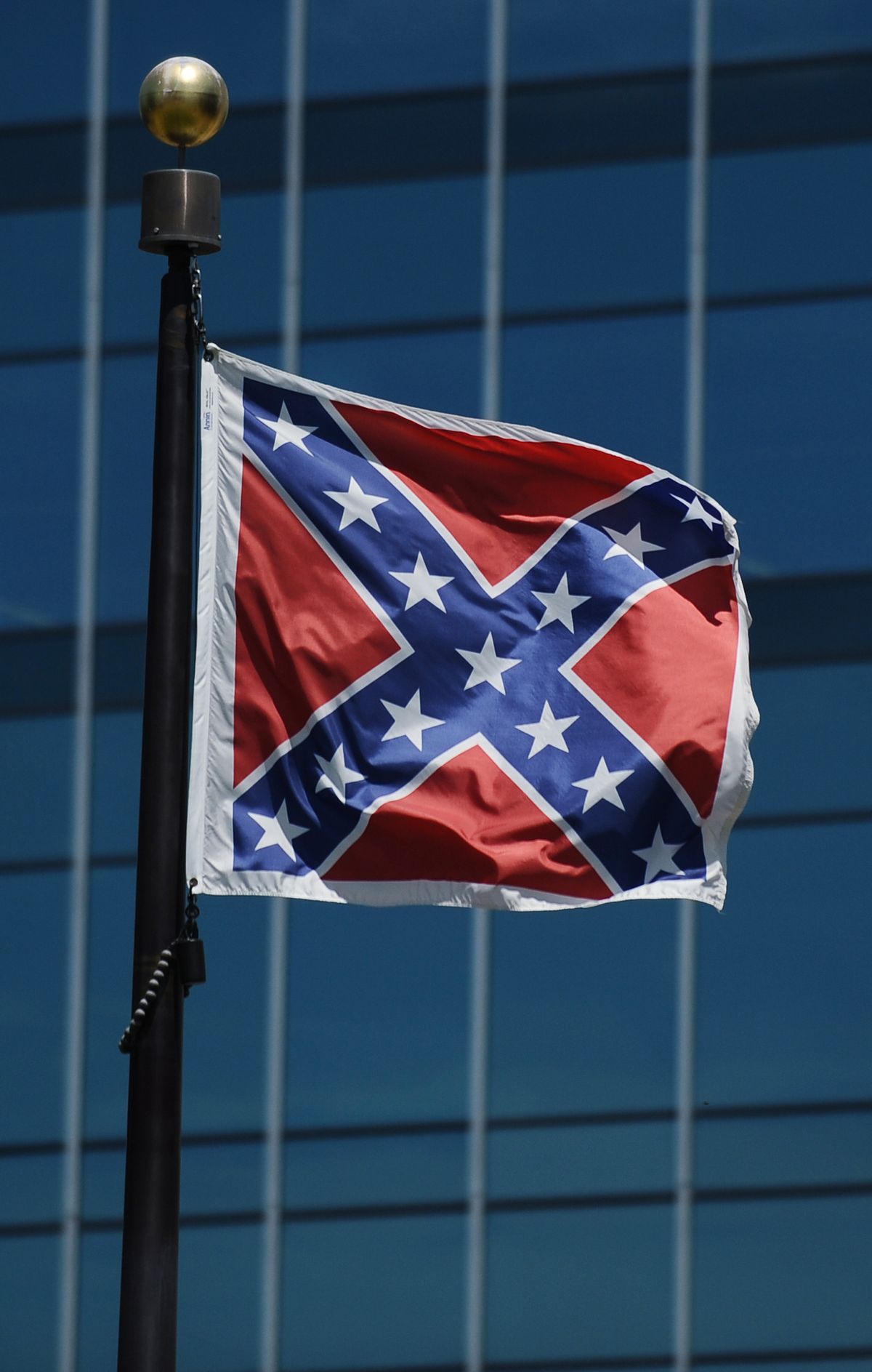South Carolina governor: Confederate flag shouldn’t fly at Statehouse

CHARLESTON, S.C. – South Carolina’s governor declared Monday that the Confederate flag should be removed from the Statehouse grounds as she acknowledged that its use as a symbol of hatred by the man accused of killing nine black church members has made it too divisive to display in such a public space.
Gov. Nikki Haley’s about-face comes just days after authorities charged Dylann Storm Roof, 21, with murder. The white man appeared in photos waving Confederate flags and burning or desecrating U.S. flags, and purportedly wrote of fomenting racial violence. Survivors told police he hurled racial insults during the attack.
“The murderer now locked up in Charleston said he hoped his actions would start a race war. We have an opportunity to show that not only was he wrong but that just the opposite is happening,” said Haley, flanked by Democrats and Republicans, blacks and whites who joined her call.
“My hope is that by removing a symbol that divides us, we can move our state forward in harmony and we can honor the nine blessed souls who are now in heaven,” Haley said.
The massacre inside the Emanuel African Methodist Episcopal Church has suddenly made removing the flag – long thought politically impossible in South Carolina – the go-to position, even for conservative Republican politicians.
Haley was flanked by Republican U.S. Sen. Lindsey Graham, now running for president, as well as South Carolina’s junior Republican senator, Tim Scott, and Democratic Rep. Jim Clyburn, both of whom are black. Within moments, her call was echoed by the Republican Party chairman and the top GOP lawmaker, Senate Majority Leader Mitch McConnell.
The governor’s declarations sparked action in other arenas as well on Monday: Mississippi House Speaker Philip Gunn called for the Confederate emblem to be removed from the state flag, becoming the first top-tier Republican to do so.
In Tennessee, both Democrats and Republicans called for the removal of a bust of Confederate general and early Ku Klux Klan leader Nathan Bedford Forrest from an alcove outside the Senate’s chambers.
And Wal-Mart announced Monday that it is removing any items from its store shelves and website that feature the Confederate flag.
Haley urged South Carolina’s GOP-led House and Senate to debate the issue no later than this summer. If not, she said, she will call a special session and force them to resolve it. “I will use that authority for the purpose of the Legislature removing the flag from the Statehouse grounds,” she said.
South Carolina House Minority Leader Todd Rutherford said he’s confident after talking to members of both parties that the Confederate flag will be taken down within the next two months.
“A lot of people understand this is a moment we have to respond to,” said Rep. Rick Quinn, a Republican and former House majority leader who said he will vote to take it down.
Lawmakers have proposed moving it to the state-run Confederate Relic Room and Military Museum.
Making any changes to the banner requires a two-thirds supermajority in both houses under the terms of a 15-year-old deal that moved it from atop the Statehouse to a position next to a monument to Confederate soldiers out front.
The last governor who called for the flag’s removal, Republican David Beasley, was hounded out of office in 1998 by the Sons of Confederate Veterans. The group’s influence also doomed his front-running Senate campaign for the seat won by Republican Jim DeMint.
“Do not associate the cowardly actions of a racist to our Confederate Banner,” the group’s South Carolina commander, Leland Summers, said in a statement. “There is absolutely no link between The Charleston Massacre and The Confederate Memorial Banner. Don’t try to create one.”
As recently as November 2014, a poll of 852 people by Winthrop University found 42 percent of South Carolina residents strongly believed the flag should stay, while only 26 percent strongly believed it should be removed.
But South Carolina’s population is slowly becoming more diverse, more educated, wealthier and more exposed to people from outside the state. And the pollster, Scott Huffman, predicts that his August 2015 survey will show that people who didn’t have strong feelings before “will have flipped and now prefer it to come down.”
Haley acknowledged there are very different views about what it symbolizes.
“For many people in our state, the flag stands for traditions that are noble,” she said.
For many others, “the flag is a deeply offensive symbol of a brutally oppressive past,” she said.
South Carolina can survive and thrive “while still being home to both of those viewpoints.”